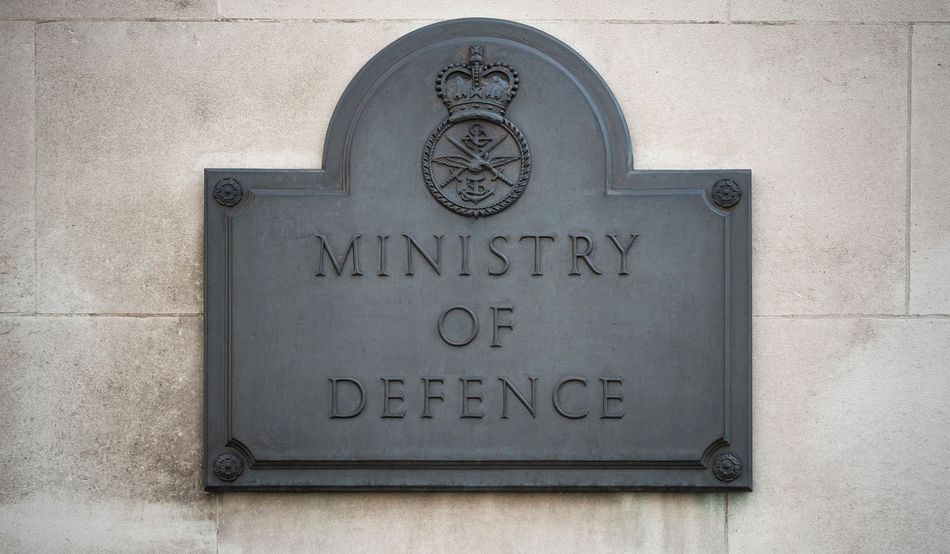I was once hit with a super-injunction… and lived to tell the full Kafkaesque tale. So I have a lot of sympathy for the media organisations who, for nearly two years, have been forced to sit on a story which the British state didn’t want told.
My own experience of being gagged involved an unappetising company called Trafigura, which had been caught dumping toxic chemicals off West Africa in 2006. The company had shelled out more than £30m in compensation and legal costs to 30,000 inhabitants of Abidjan in Ivory Coast who claimed to have been affected by the dumping.
Trafigura was keen to suppress the findings of an internal report, which could have proved embarrassing. So it obtained an injunction to stop the Guardian from publishing it—and then, for good measure, a further injunction to prevent us from revealing the existence of the original injunction.
Welcome to super-injunctions, which were, for a while, sprayed around like legal confetti—often by errant footballers keen to keep their off-pitch escapades secret. The Trafigura case represented a novel application of the law to silence investigative journalism, seemingly contradicting the only dictum about the courts that most people are familiar with—the principle that the law must be seen to be done.
Trafigura went one step further. When a Labour MP tabled a question about its use of a super-injunction, their lawyers, the unlovely company Carter-Ruck, even warned newspapers that they would be in contempt of court if they dared mention this parliamentary intervention.
That was plainly ludicrous. Trafigura’s legal pitbulls had lost sight of the fact that people risked their liberty and their lives to fight for the right to report what their elected representatives say and do. The super injunction collapsed like an undercooked souffle.
And here we are 16 years later, discovering that, for 683 days, a tiny handful of lawyers, judges, politicians and civil servants had been silencing the press from telling the most extraordinary story of how a hapless Ministry of Defence (MoD) official caused a catastrophic data breach, putting the lives of thousands of Afghans in peril.
The saga began in September 2023 when Mr Justice Knowles issued a gagging order contra mundum (against the world) forbidding anyone from revealing the leak, which named Afghans who had assisted the British forces in Kabul—and who might now be at risk of reprisals from the Taliban. The judge spoke in lukewarm terms about the importance of freedom of expression, but considered a blanket gag was essential to give the MoD time to mitigate the harm.
Since then, a growing number of journalists became aware of the story, and another judge, Mr Justice Chamberlain, held multiple hearings—many of them closed to outsiders—to decide how long the injunction should hold. At one point, about a year ago, he thought enough was enough, but was overruled by the Court of Appeal.
It was only this week that the curtain was lifted and we were allowed to know that as many as 18,500 Afghans had secretly been flown to Britain at a cost variously estimated to be between £400m and £7bn (ie we don’t know). The clincher for Chamberlain was a risk assessment report commissioned by the current government from a retired civil servant, Paul Rimmer.
Rimmer took a markedly different view of the ongoing risk and, said Chamberlain, “fundamentally undermined” the case for the gagging order to continue. And so it was that, at midday on Tuesday, the jaw-dropping nature of what had been going on was finally revealed.
Some might argue that, back in September 2023, there was a case for some kind of news blackout to give the authorities a chance to alert those most at risk, and to extricate as many people as possible. The question is, was it right to keep the gagging order in place for so long? Chamberlain clearly thought it was fine to discharge it a year ago. Was he right? Or was the MoD justified in arguing for more time?
The first thing to be said is that the state (in the form of governments and Whitehall) will, in such circumstances, always argue for more secrecy. They will say they are acting in the national interest. But history tells us that the government of the day can often not be trusted in their judgment of where the national interest lies.
In 1938, the government of the day attempted to use the Official Secrets Act to compel Duncan Sandys MP to disclose the source of his information about the state of anti-aircraft defences around London. Sandys later became defence minister.
Historians now take a different view of those who opposed appeasement in the 1930s. Also in the 1930s, the appeasing government condemned the “subversive” whistleblowers who were feeding Winston Churchill information about Britain’s readiness for war. “The damage done to the Services far outweighs any advantage that may accrue,” raged a now-forgotten war minister. He was wrong: Churchill and his informants were right.
The government of the day tried in 1967 to prevent the Sunday Times, under its editor, Harold Evans, from publishing an accurate account of the case of former MI6 agent Kim Philby and his life as a double agent. The then foreign secretary, George Brown, having failed to prevent publication, publicly accused Evans of being a traitor and of “giving the Russians a head start... for god’s sake, stop!”
It’s not just a British instinct. In 2004, George W Bush talked the New York Times out of running a series of articles which revealed that the US National Security Agency (NSA) had been eavesdropping on the communications of Americans without any warrant. Bush told the editor: “You’ll have blood on your hands.” The editor spiked the articles.
So Mr Justice Chamberlain was right to be a little sceptical about what the state’s representatives were telling him during this two-year saga. As he pointed out, the potential sums of money involved (£7bn!?) and the sheer number of urgent migrants were entirely legitimate subjects of political debate.
Even more troubling is the fact that members of parliament’s Intelligence and Security Committee (ISC) were also kept in the dark. In June 2024, a Court of Appeal judge suggested that the ISC might be allowed access to the issue. But the lead KC for the MoD pooh poohed the idea.
Lord Beamish, the ISC’s chair, said the decision not to keep his committee in the loop was “appalling”. He’s right. The ISC is a statutory committee intended to scrutinise the work of Britain’s spy agencies, including GCHQ, MI6 and MI5. Being told that the MoD doesn’t trust them with “certain pieces of information” calls into question the entire mechanism of oversight in the secret state. What else do the spooks not think they can be trusted to know?
Ironically, the seven media organisations that were in on the secret by the time the injunction was finally discharged all behaved impeccably in not breathing a word. It’s a topsy-turvy world in which journalists can be trusted with knowing information that the ISC was denied.
Lord Beamish is right to be furious—and no doubt his committee will want answers. They’re not the only ones. There should be the fullest possible reckoning. As the saying goes, democracy dies in darkness.













